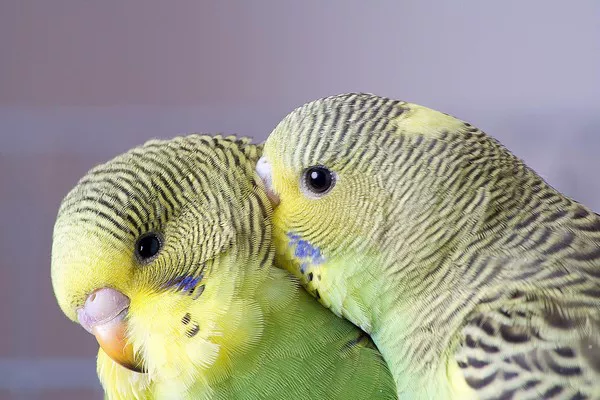Conures are vibrant, playful, and intelligent birds that make wonderful companions. These small to medium-sized parrots belong to the larger family of birds called the “Psittacidae,” which includes other popular species such as macaws, cockatoos, and African grey parrots. Known for their cheerful personalities and loud calls, conures are often sought after for their affectionate nature and colorful plumage. However, like all pets, conures rely on their owners to provide the right environment to stay happy and healthy.
Understanding whether your conure is happy is crucial to ensuring that it remains in good health and lives a fulfilling life. In this article, we will explore the various behaviors and signs to look out for, the role of diet and environmental factors, and how to create the perfect living conditions for your conure to thrive.
Behavioral Signs of a Happy Conure
Conures, like many birds, communicate their emotions through body language, vocalizations, and actions. Understanding these signs will help you determine whether your conure is in a good emotional state.
Playfulness and Curiosity
A happy conure is an inquisitive and playful bird. Conures are known for their curious nature, and a healthy bird will be keen to explore its surroundings. It will enjoy engaging with toys, climbing on its cage, and seeking out new things to investigate. If your conure enjoys exploring its environment, playing with objects, or interacting with you, these are clear indicators that it is mentally stimulated and content.
Conures love toys, especially those that engage their natural instincts, such as chew toys, foraging toys, and those that make noise. If your bird actively plays with its toys, it shows that it is not only physically active but also mentally engaged, which are both signs of happiness.
Vocalization
Conures are generally noisy birds, and a happy conure will often express itself vocally. The sounds a conure makes can vary from soft chirps and whistles to loud squawks, but the key to understanding your bird’s emotional state lies in the context and frequency of the sounds.
A happy conure will make cheerful, melodic noises and might sing or whistle regularly, especially when it sees its human companions. A loud, constant squawk or scream, on the other hand, may indicate distress, frustration, or a need for attention. Pay attention to the tone of your bird’s voice: soft chirps and relaxed calls suggest that your conure is feeling secure and content.
Tail Waving and Body Postures
Conures will often use their body language to express how they feel. A happy and comfortable conure will exhibit relaxed body postures, with its tail feathers slightly fanned out. A tail that is constantly twitching or moving in an erratic manner can indicate anxiety or excitement.
Another sign of happiness is when your conure stands tall with an erect posture. This is an indication that the bird is confident and not feeling threatened. If your conure stands on one leg, it may also be a sign of relaxation and comfort.
Preening and Grooming
Grooming is an important aspect of bird behavior and is essential for a conure’s well-being. When a conure is preening itself regularly, it is a good sign of happiness and self-care. A happy conure will also allow you to pet or scratch its head and neck, showing trust in you as its owner.
If your bird becomes overly aggressive or uncomfortable when you try to touch it, it may indicate that it is feeling stressed or anxious. However, if it enjoys the interaction and even preens itself or you in return, it is likely feeling content.
Affectionate Behavior
Conures are known for forming strong bonds with their owners and often display affectionate behaviors as a sign of happiness. A conure that is comfortable with you will often sit on your shoulder or lap, seek out attention, or even nuzzle up against your cheek or neck. These interactions are clear signs that your bird feels safe and loved.
A happy conure may also “kiss” or nibble at your fingers, and it may initiate contact by flying over to you. The key here is that your bird seeks positive interaction rather than retreating from you or avoiding contact.
Flapping and Wing Stretching
A happy conure will often stretch its wings or flap them in excitement. This is typically seen when the bird is in a good mood or during playtime. However, it’s important to differentiate between the playful wing flapping and other forms of stress-induced behavior. Wing-flapping during excitement is often accompanied by chirping and hopping around, while stressed birds may flap their wings with an anxious or distressed posture.
The Importance of a Healthy Environment
A conure’s environment plays a significant role in its overall happiness. These birds need both mental and physical stimulation to feel content. If your conure is kept in an environment that lacks enrichment or social interaction, it may become bored, stressed, or anxious. Here’s how you can create a healthy, happy environment for your bird.
Cage Size and Placement
Conures are active birds that need enough space to move around and spread their wings. Make sure the cage is large enough to accommodate your bird’s size, with enough room for it to climb, fly short distances, and explore. A cage that is too small can make your bird feel cramped and uncomfortable.
Additionally, the placement of the cage is important. Conures are social birds and should not be isolated for long periods. Place the cage in a location where your bird can observe family activities and interact with you, but make sure it is away from drafts or direct sunlight. Birds need a consistent, comfortable temperature to thrive.
Socialization and Interaction
As social creatures, conures thrive on interaction and attention. A happy conure will want to spend time with you, whether it’s sitting on your shoulder, playing, or simply being close to you. Daily interaction is essential to ensure that your bird feels emotionally secure.
Conures can become lonely if left alone for long periods of time. If you are away from home often, consider providing your bird with a companion or rotating toys to keep it entertained.
Mental Stimulation
Conures are incredibly intelligent birds that require mental stimulation to remain happy. Providing your bird with a variety of toys is crucial to its well-being. Toys that encourage foraging, problem-solving, or interactive play are perfect for keeping your conure entertained and mentally sharp. You can also rotate toys regularly to keep things interesting.
Additionally, training your bird to perform simple tricks or commands can provide it with mental stimulation and strengthen the bond between you and your pet. Conures are quick learners, and teaching them new skills can be an enjoyable experience for both of you.
Safety and Comfort
A safe, comfortable living space is vital for your conure’s happiness. Ensure that the cage is equipped with perches of different sizes and materials to support healthy foot development. Avoid cages with hazardous materials like lead or zinc, which can be toxic to birds. Also, ensure that your bird has access to clean water and a healthy diet at all times.
If your conure enjoys being outside, provide a safe and secure space for it to explore, but always supervise it to protect it from predators or accidents. Outdoor time can provide additional mental and physical stimulation, which contributes to a happy and healthy bird.
The Role of Diet and Nutrition
A proper diet is essential for a conure’s overall health and happiness. Just like humans, birds require a balanced diet to stay healthy and energized. The right nutrition can affect your bird’s mood, energy levels, and overall behavior. Here are some key dietary factors to consider:
Variety in Diet
Conures require a varied diet to meet all their nutritional needs. A combination of high-quality pellets, fresh fruits, vegetables, seeds, and nuts is ideal. Ensure that your bird’s diet is rich in vitamins, minerals, and essential fatty acids. Some good fruit and vegetable options for conures include apples, bananas, carrots, spinach, and kale.
It’s also important to avoid feeding your conure certain foods that are toxic to birds, such as avocado, chocolate, caffeine, and alcohol. Offering a diverse and well-balanced diet helps maintain your conure’s energy levels and general health, leading to a happier, more active bird.
Fresh Water
Hydration is just as important as nutrition. Make sure your conure has access to fresh, clean water at all times. Change the water daily to prevent bacteria buildup. Dehydration can lead to health problems and irritability in birds, so it is essential to monitor water intake and ensure your bird is drinking enough.
Signs of Unhappiness or Distress
While it’s important to look for signs of happiness, it’s equally important to recognize when something might be wrong. An unhappy or distressed conure may exhibit a variety of behaviors that indicate a problem with its environment or well-being.
Some signs of unhappiness in a conure include:
Feather Plucking or Biting: Birds often pluck their feathers or bite themselves when they are stressed or bored.
Aggression: If your normally gentle conure becomes aggressive, it may be a sign of frustration or discomfort.
Loss of Appetite: A sudden lack of interest in food may indicate that your bird is unwell or stressed.
Lethargy: A tired or listless bird that isn’t playing or interacting as usual may be experiencing health issues or emotional distress.
Conclusion
Knowing whether your conure is happy requires careful observation of its behavior, body language, and environment. Happy conures are playful, affectionate, and engaged with their surroundings. Providing a safe, stimulating environment, a balanced diet, and regular interaction will go a long way in ensuring that your conure remains content and healthy. If you notice any signs of distress, take proactive steps to address the issue, whether it’s through improving its environment or seeking veterinary care.
With the right care and attention, your conure will be a joyful and loving companion for many years to come.
Related Topics:
























